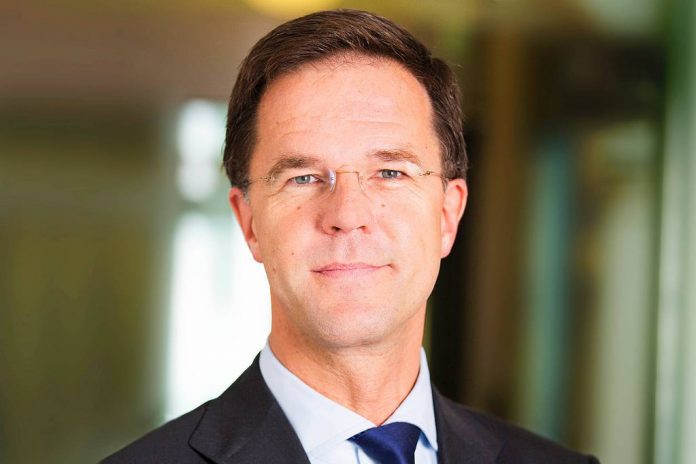More and more Europe is not the answer to the many problems that people face in their daily lives. So said Dutch Prime Minister Mark Rutte during a debate about the future of Europe on June 13.
“So let me be very clear,” he explained, “the debate about the future of the EU should not be about more or less Europe. It should be about where the EU can add value,” he added. “I believe that the future of Europe should essentially be about the original promise of Europe. The promise of sovereign member states working together to help each other achieve greater prosperity, security and stability.”
“But we can only deliver on this promise if a deal is a deal. And if the difficult compromises we have to make apply to everyone – and in full. Europe isn’t a menu you can pick and choose from”.
The seventh EU leader to debate the future of Europe with MEPs and the European Commission First Vice-President Frans Timmermans, Rutte listed the common migration policy, joint control of the EU external borders and collective security and climate action as areas upon which the EU needs to focus. He said that the current EU target of reducing greenhouse gas emissions by 40% by 2030 is not enough, proposing a 55% reduction instead.
He also argued that much could be improved within the Eurozone.
“We’ve come a long way, and the EU has shown that it can take action when it has to. But we’re not sufficiently prepared for another crisis,” said Rutte. “And yes, I know that a currency union needs stabilisation mechanisms at times of crisis. But if the 19 Eurozone countries were to put their own budgets and national debts in order, that would probably be stabilisation enough. That, too, is simply an existing agreement under the Stability and Growth Pact.”
According to the European Conservatives and Reformists (ERC) Group’s MEP Peter Van Dalen, the Netherlands should emerge as the new voice against the continual calls in Brussels for ‘more Europe’.
“No more united states of Europe,” he said. “We need a Europe that works for its member states, not against them. With an ambitious but realistic budget. A Eurozone that does not become a transfer union, and an EU that helps Italy and Greece solve the migrant crisis. If the EU does not change its course now, its institutions will continue to drift further and further from its most important partner, its citizens.”
Also responding to Rutte’s speech, the European United Left–Nordic Green Left (GUE/NGL) Group’s Vice-President Dennis de Jong (Socialistische Partij, Netherlands) highlighted inconsistencies.
“Mr Rutte, you put the markets at the core of your speech. You did so even when talking about the security and safety of citizens and the rule of law. This emphasis is a mistake. The reality is that more than half of all wealth is concentrated in the hands of the 1%, with 99% of the people having to divide the rest. What are you doing for them?
“It is important to focus on taxation and the fight against tax evasion. Young people do not have the same opportunities their parents had,” he added. “Even equal pay for equal work falls short in the latest directives, dealing insufficiently with pensions in the country of origin and trampling on the rights of international road transport drivers, who are protesting outside.”
MEP Anja Hazekamp (Partij voor de Dieren, Netherlands) raised environmental concerns. “Mr. Rutte, you said that the EU should promise less and deliver more. You advocated for a 55% cut in greenhouse gas emissions, as opposed to 30%. I commend you for this. Yet, the Netherlands continues its dependence on natural gas, which does not only cause weekly earth tremors in Groningen but does nothing to advance our commitments in the Paris Agreement.”
“Likewise, the Netherlands is failing to reach the UN Sustainable Development goals due to prevalence of poverty, lack of investment in renewable energy, and weak support for organic farming.”
“The reality is that your government is doing little to tackle these problems. For example, the derogation for manure that the Netherlands has insisted on in Brussels, puts additional pressure on organic farmers, perpetuates animal suffering, and pollutes the environment,” Hazekamp said.

